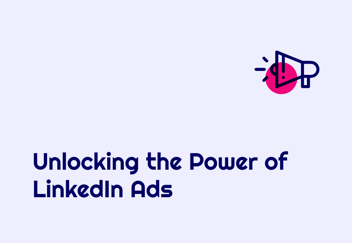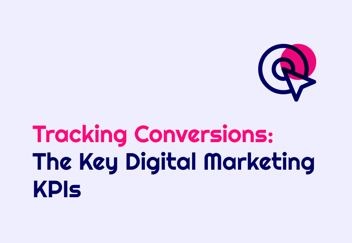PPC Mastery for Home Care Agencies
Unlock the power of PPC advertising for your home care agency with our comprehensive guide.
Unlock the power of PPC advertising for your home care agency with our comprehensive guide.
PPC Advertising
PPC advertising is a highly effective digital marketing strategy for home care agencies. It allows you to place ads on search engines and other online platforms and pay only when someone clicks on your ad. This means that you are only paying for actual engagement and potential leads.
With PPC advertising, you can target specific keywords and demographics, ensuring that your ads are shown to the right audience. This helps increase the chances of attracting interested individuals who are actively searching for home care services.
To make the most of PPC advertising, it is important to conduct thorough keyword research, create compelling advertisements, optimize landing pages, and track and analyze the performance of your campaigns. Let's explore each of these aspects in more detail.
Keyword Research for Home Care Agencies
Keyword research is a crucial step in any PPC campaign. It involves identifying the keywords and phrases that potential clients are using when searching for home care services. By targeting these keywords, you can increase the visibility of your ads and attract relevant traffic to your website.
Start by brainstorming a list of keywords that are relevant to your home care agency. These can include terms like 'home care services,' 'elderly care,' 'in-home assistance,' and 'caregiver services.' Once you have a list of potential keywords, use keyword research tools to determine their search volume and competition level.
Focus on long-tail keywords that are more specific and less competitive. For example, instead of targeting the broad keyword 'home care,' consider targeting '24-hour home care services for seniors' or 'specialized dementia care in-home.' These long-tail keywords have lower search volume but higher intent, increasing the likelihood of conversions.
Additionally, monitor the performance of your keywords and make adjustments as needed. Remove underperforming keywords and add new ones based on ongoing research and data analysis.
Creating Persuasive Advertisements
Once you have identified your target keywords, it's time to create persuasive advertisements that compel users to click on your ads. Here are some tips to keep in mind:
1. Write compelling ad copy: Craft attention-grabbing headlines and concise descriptions that highlight the unique value your home care agency offers. Use strong calls-to-action to encourage users to take the desired action, such as 'Call Now' or 'Request a Free Consultation.'
2. Use ad extensions: Take advantage of ad extensions to provide additional information and increase the visibility of your ads. Include extensions like site links, callouts, and structured snippets to showcase specific services, promotions, or testimonials.
3. Leverage ad targeting options: Utilize targeting options such as location targeting, device targeting, and demographic targeting to ensure your ads are shown to the most relevant audience. This helps maximize your budget and increase the chances of conversions.
Remember to regularly monitor the performance of your ads and make necessary optimizations to improve their effectiveness.
Improving Landing Page Conversion Rates
A well-designed landing page is essential for converting ad clicks into actual leads or clients. Here are some tips to improve your landing page conversion rates:
1. Keep it simple and focused: Remove any distractions and keep the layout clean and user-friendly. Clearly communicate the benefits of your home care services and provide a clear call-to-action.
2. Use compelling headlines and visuals: Capture the attention of visitors with a compelling headline that addresses their needs and desires. Include relevant visuals, such as images of happy clients or caregivers, to build trust and credibility.
3. Optimize for mobile: Ensure that your landing page is fully optimized for mobile devices. With the increasing use of smartphones, it is crucial to provide a seamless experience for mobile users.
4. Include testimonials and reviews: Showcase positive testimonials and reviews from satisfied clients to build trust and credibility. People are more likely to trust the opinions of others when making a decision about home care services.
5. Implement clear forms and contact options: Make it easy for visitors to contact you by including a clear form or prominent contact information. Provide multiple contact options, such as phone, email, and live chat, to accommodate different preferences.
Regularly test and optimize your landing page to ensure maximum conversion rates.
Tracking and Analyzing PPC Performance
Tracking and analyzing the performance of your PPC campaigns is crucial for optimizing your strategy and maximizing results. Here are some key metrics and tools to consider:
1. Click-through rate (CTR): This metric measures the percentage of users who click on your ads after seeing them. A high CTR indicates that your ads are relevant and compelling to your audience.
2. Conversion rate: The conversion rate measures the percentage of users who complete a desired action, such as filling out a contact form or making a phone call. Tracking this metric helps you understand the effectiveness of your campaigns in generating leads.
3. Cost per click (CPC): The CPC metric shows how much you are paying on average for each click on your ads. Monitoring CPC helps you optimize your budget and ensure that you are getting the most value from your ad spend.
4. Google Analytics: Use Google Analytics to track website traffic, user behavior, and conversions. Set up conversion tracking to measure the specific actions that are valuable to your home care agency, such as form submissions or phone calls.
5. A/B testing: Experiment with different ad copies, landing page designs, and targeting options to identify the most effective strategies. Conduct A/B tests and analyze the results to make data-driven decisions.
By regularly monitoring and analyzing these metrics, you can identify areas for improvement and make data-driven optimizations to your PPC campaigns.
Your ultimate guide to strategic outsourcing
Subscribe for expert tips, trends, and tailored solutions.





